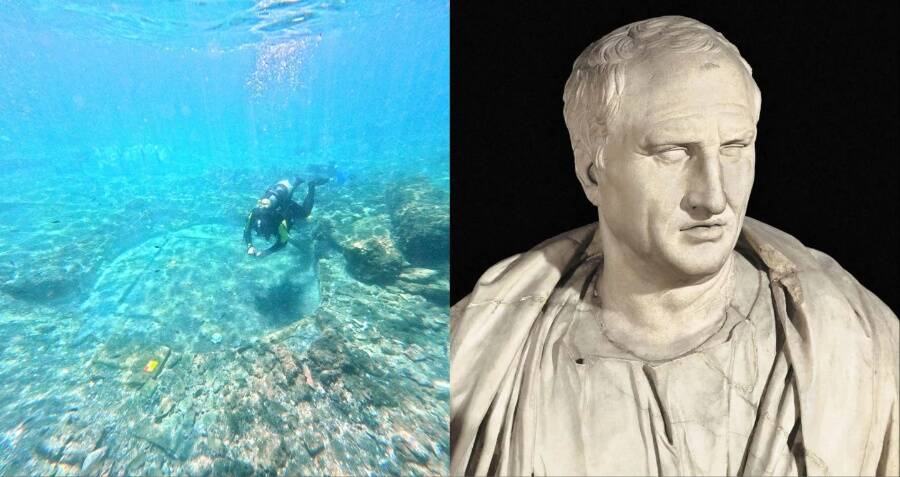CICERO

SUNKEN ROMAN BATHHOUSE IN BAIAE MAY HAVE BELONGED TO CICERO
Off the coast of Naples, Italy, lies the sunken city of Baiae — once the playground of Rome’s wealthiest and most powerful. Known in its heyday as a “vortex of luxury” and a “harbor of vice,” Baiae attracted emperors, senators, and statesmen who built extravagant villas to escape the heat of Rome and indulge in seaside pleasures.
Today, most of Baiae is submerged beneath the Mediterranean due to centuries of volcanic activity, but its ruins remain astonishingly intact. And now, archaeologists believe they may have found something remarkable — a lavish Roman bathhouse that could have belonged to Cicero, one of ancient Rome’s most celebrated politicians and philosophers.
The discovery was made about 10 feet underwater in the Parco Archeologico Sommerso di Baia. Researchers uncovered mosaic floors, heating systems, traces of wall paintings, and evidence of a sauna room (laconicum), all pointing to the bathhouse’s sophistication. These features suggest it was owned by a figure of high status.
According to ancient records, Cicero owned a villa in Baiae, making it possible that these ruins are part of his estate. If confirmed, this would provide an extraordinary link between one of Rome’s greatest orators and the legendary resort city.
Baiae itself was famous — and infamous. The poet Sextus Propertius once called it a hub of indulgence and excess. Emperors like Nero and Caligula left their mark here, with Caligula even ordering the construction of a floating bridge across its gulf to prove a prophecy wrong. The city flourished for centuries but eventually succumbed to invasions and geological instability, sinking steadily into the sea.
For Cicero, history was just as dramatic. Born in 106 B.C.E., he rose to prominence as a skilled speaker and defender of the Roman Republic. But after the political upheaval following Julius Caesar’s assassination, he was executed in 43 B.C.E. His villa in Baiae, however, may still whisper his story — preserved beneath the waves for over two millennia.
Today, the submerged ruins of Baiae are part of an underwater archaeological park, offering divers and historians a breathtaking glimpse into Rome’s luxurious past. And with each new discovery, the city continues to remind us why it was once considered the ultimate resort of the Roman world.
"This represents a significant development in our ongoing coverage of current events."— Editorial Board









